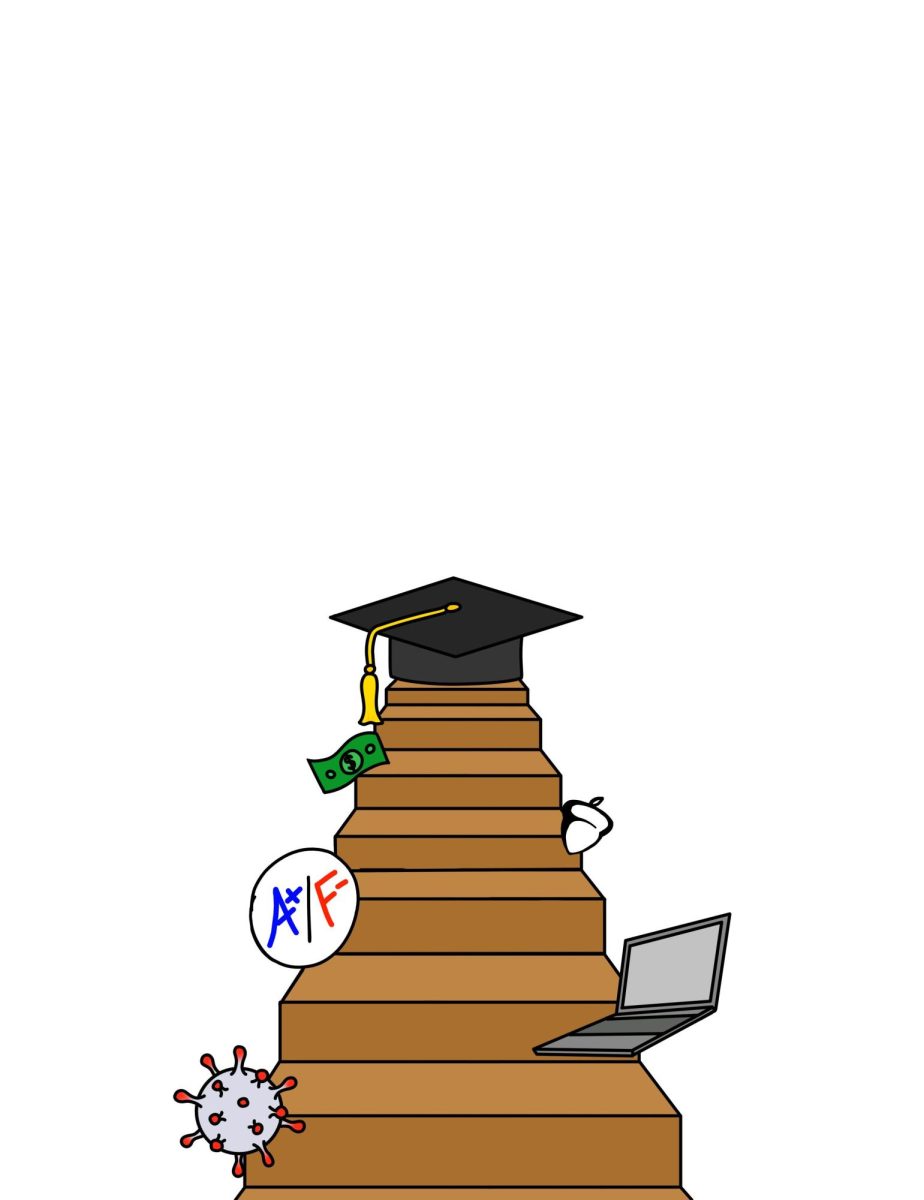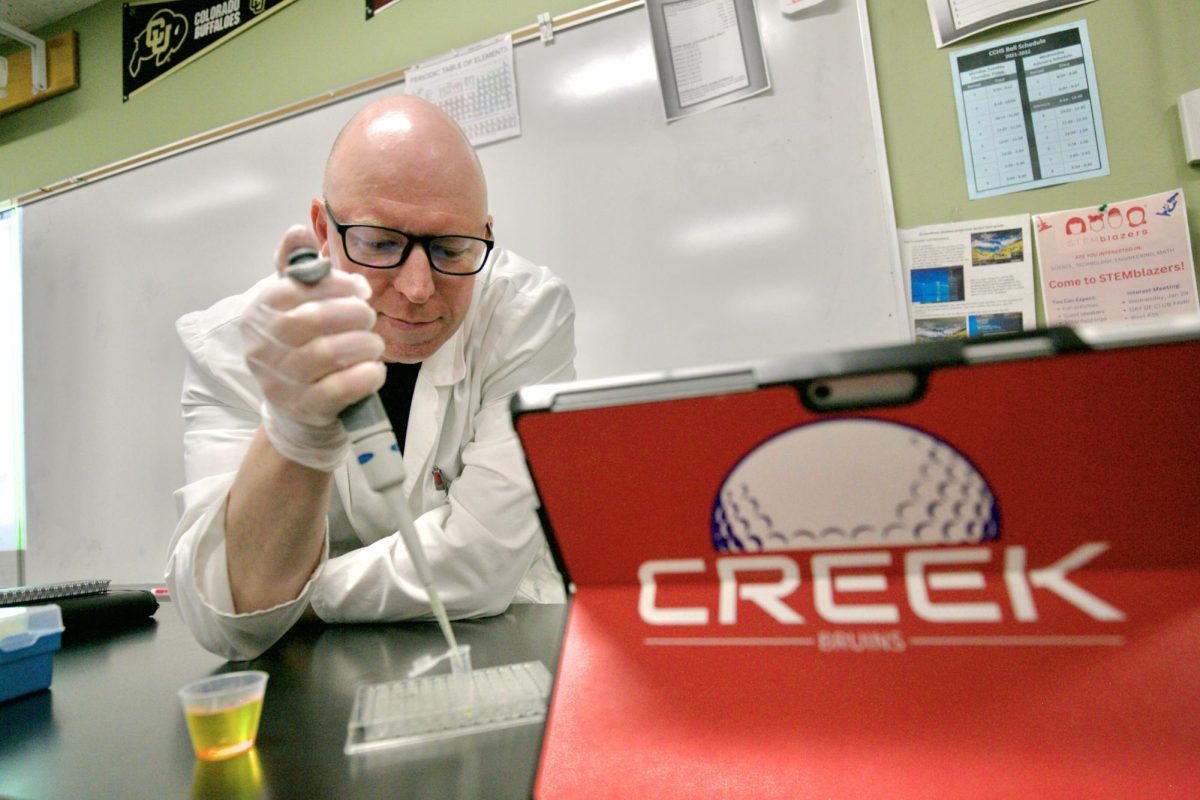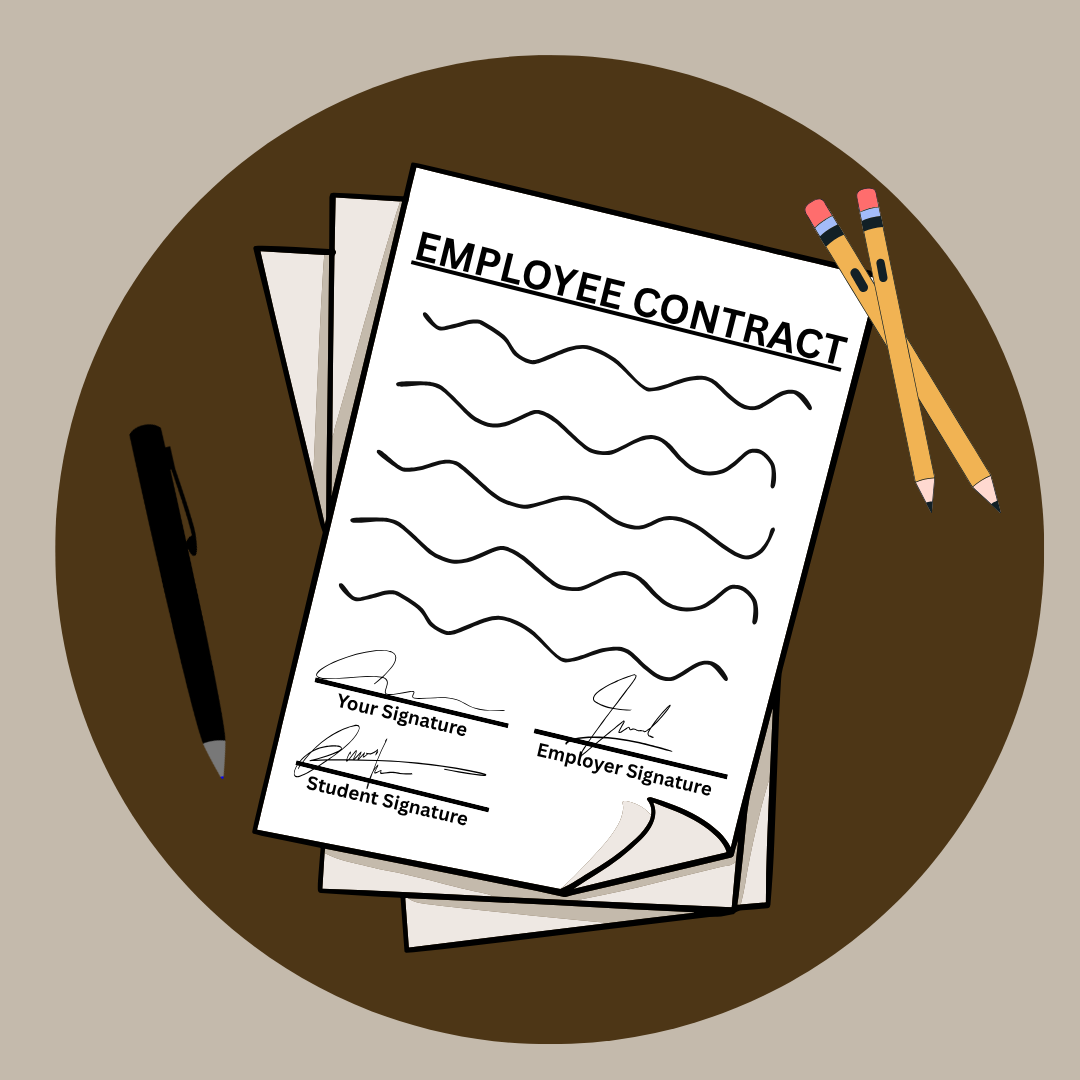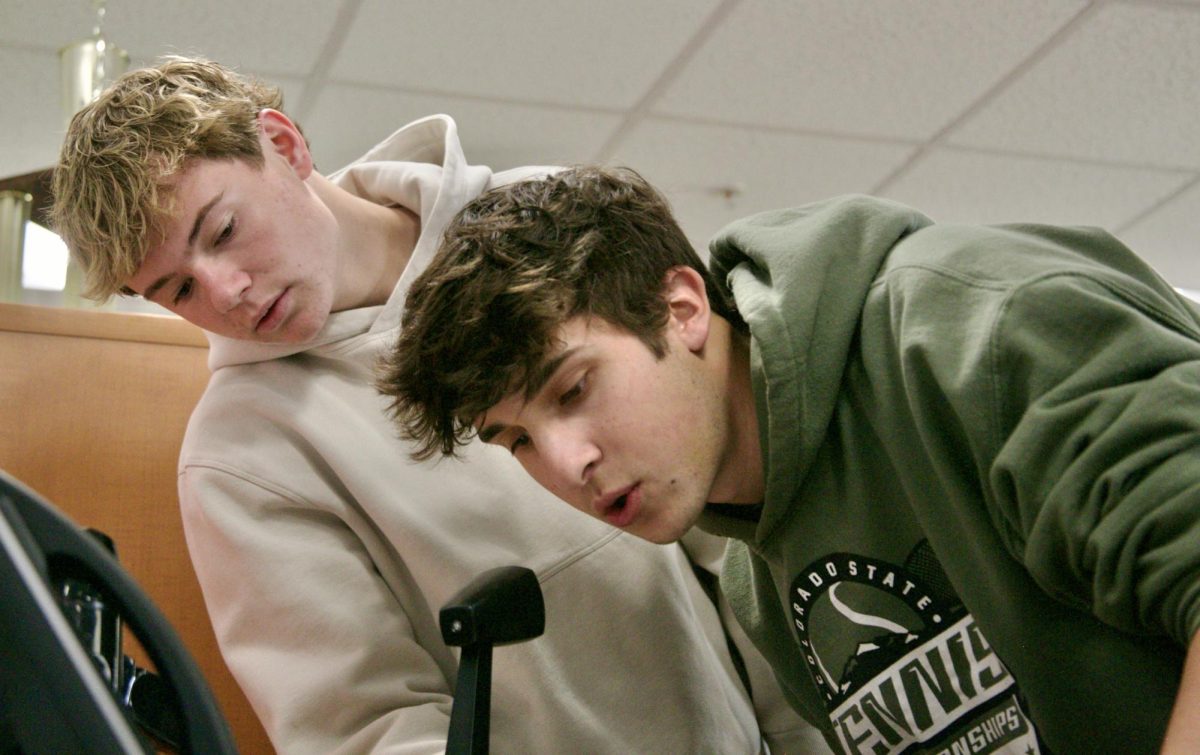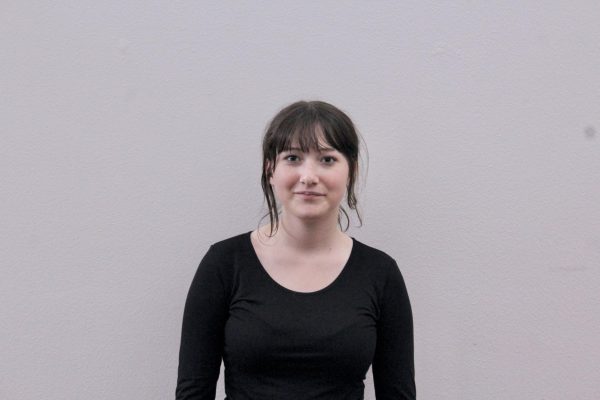People’s faces were hidden. Words were masked and smiles were covered. Fear followed everyone to the bus and covered the walls of their homes.
Still, almost four years later life lingers with the effects of COVID-19, an infectious disease that shut down schools and businesses around the world.
“We had to wear masks at the beginning going into freshman year, [it was] super disconnected,” senior Lilly Benobitz said.
At the beginning of the class of 2025’s freshman year, it had only been six months after a national lockdown and students had just graduated from doing hybrid schedules in middle school. When freshmen came to Creek, masks were completely mandatory, shrouding students’ faces from their peers.
Even after the main strand of COVID-19 passed, the mental health of some students didn’t improve. Some of the students dealt with extreme loneliness and lack of social connection because, at the time, most students did all of their communication with their peers online instead of in person.
“I think a lot of kids struggled with isolation, and we saw a big spike in mental health needs,” Dean Brittany Fadeyi said.
During COVID-19, many students” grades dropped. Because of this, teachers had to rethink the grading process. The superintendent informed teachers they were not allowed to fail any students due to the unprecedented situation that COVID put them in, and many teachers believe that grading systems used in high school.
“We tried as much as possible to have some forgiveness in some aspects of things, but still try to have academic expectations,” post-grad coordinator Craig Wittgrove said.
But students still worry about how their unsatisfactory freshman year grades will affect them as they apply for colleges, since they didn’t match the same levels of knowledge that their pre- COVID peers demonstrated.
“[I’m worried it will be] hard to go to the colleges I want to because my freshman grades weren’t the best I wanted them to be,” senior Sube Sukhtugs said.
As freshmen, students’ grades were built around having grace. Now, a big reason that students’ grades have been low is the amount of late work they all have, which many teachers believe results from more relaxed COVID-19 era deadlines.
“We were giving everyone grace, we were giving ourselves grace, but I don’t think we’ve rebounded from that,” English teacher Marissa Voss said. “We were incredibly lenient with due dates and students seem to still expect that leniency.”
More leniency also hurts the motivation of students. Due to the relaxed grades as students entered high school, their understanding of the class expectations were reduced. More and more students began to procrastinate, and often believed that good grades were less difficult to achieve than before.
“That’s why I stopped working for everything. Why will I work harder to get the same grade as everyone else?” Benobitz said. Voss found that the disappearance of more relaxed grading after COVID-19 had changed something in her students. Now students have more of a fear of being vulnerable, a “barrier wall” has been built between a teacher and their student; kids now come to class and the first thing they do is pull out their cellphones.
“What made the class magical in the past was what students brought to it. Their willingness to share their voice, their ideas,” Voss said. “[Now] thereâ’s an opportunity for sharing and talking that doesn’t happen because they’re on their phones.”
Another drawback that teachers are worried about is the habits that seniors aren’t building, habits needed for college. Some teachers worry about how college professors won’t be able to individually take care of each student, and how that could be a big change for graduating students.
“If we’re not building really solid foundational habits here in high school, I’m concerned that students will get to college and be overwhelmed,” Voss said.

